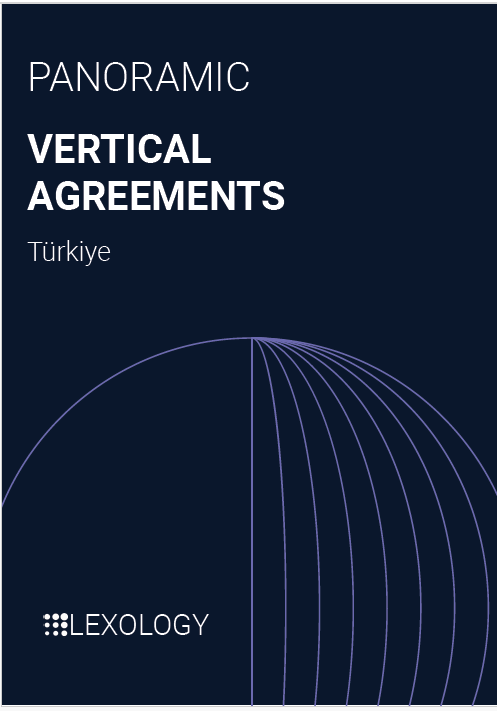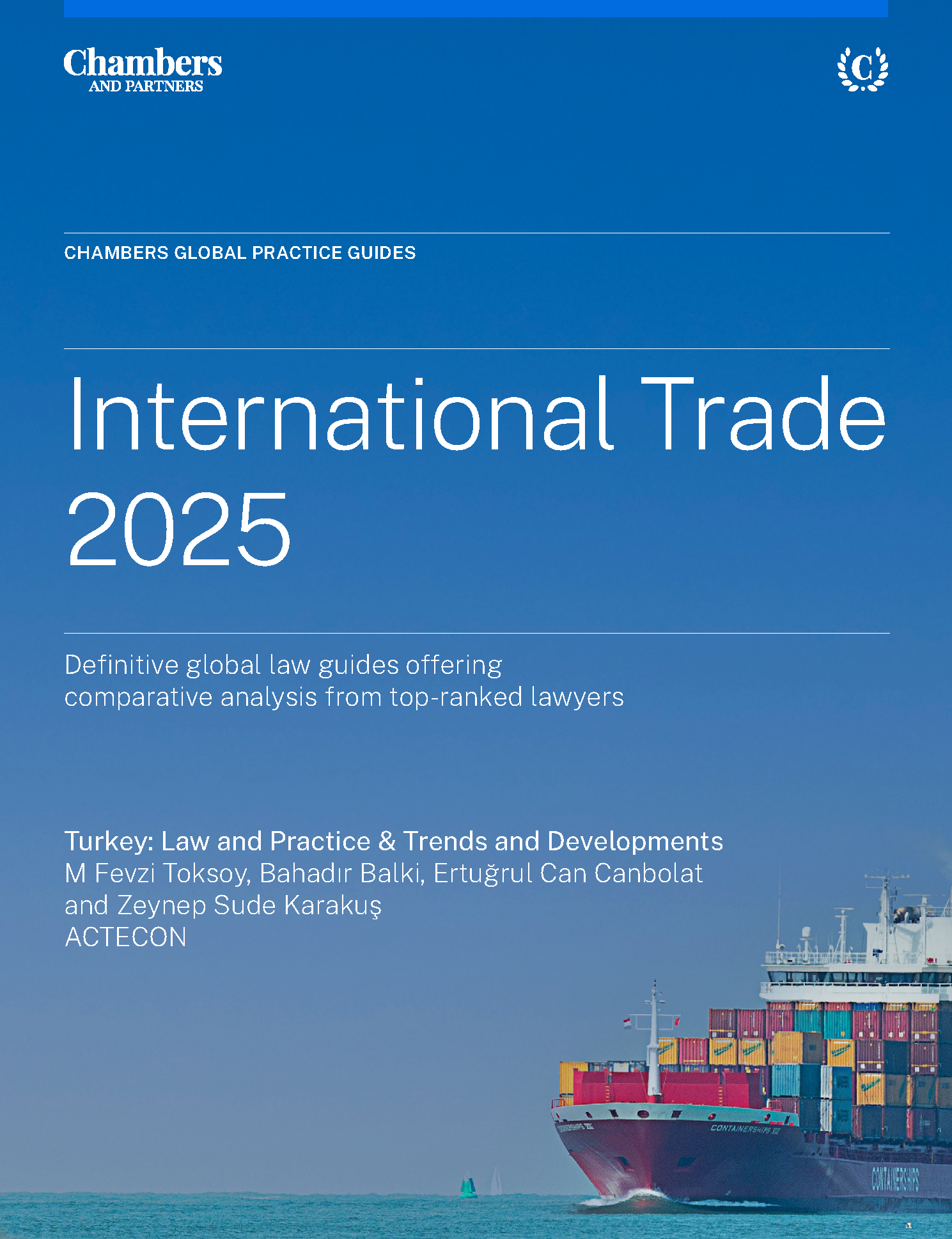No Excuses to Not Responding to Information Requests: Financial Institutions Case in Turkey
| Competition Law

No Excuses to Not Responding to Information Requests: Financial Institutions Case in Turkey
Article by Ertuğrul Can Canbolat, Caner K. Çeşit and Celal Duruhan Aydınlı
1. Introduction
The issuance of requests for information (“RFIs”) within the scope of an investigation or a merger control case can be deemed one of the main tools that enables, on the one hand, a competition authority to have a better understanding of the actual market situations as well as the nature of the alleged conducts, and on the other hand, provides a hint to the concerned undertakings about the potential assessments to be made by that authority. That being said, the broader interpretation of the letter of the relevant rules as regards the extent to which a competition authority may enforce its power of issuing RFIs or sanctioning undertakings due to their failure to submit any of the requested data without considering the undertakings’ capabilities or other special circumstances has always raised the controversies about whether the concerned interpretation accords with the spirit[1].
In this context, it would not be wrong to stress that albeit the Turkish Competition Authority (“TCA”) issued very compehensive RFIs in some cases, it generally adopts rather a milder approach in terms of extending the deadlines for responding to the RFIs upon undertakings’ requests and is tolerant to the explanations of the undertakings on their ability to collect the requested data[2]. As to the undertakings’ perspective, answering such RFIs might seem easy at first glance, but the process might get harder than some may assume, especially for global companies.
We believe that the TCA’s decision[3] fining certain financial institutions[4] and a consultancy institution[5] due to failure of providing the requested information (“FX Chat RFI Decision”) announced on 28 October 2020 may shed light on how the arguments concerning the capability of an undertaking to gather the requested data or rules on the protection of personal data are evaluated by the TCA and who is the addressee of the fine. Before delving into the details of the TCA’s assessment on the failure to provide in its FX Chat RFI Decision, a brief summary of the ongoing preliminary investigation and the TCA’s previous case on a similar subject[6] will be given.
2. FX Chat RFI Decision – A Brief Overview of the Ongoing Preliminary Investigation
On 17 January 2020, the TCA resolved to carry out a preliminary investigation with respect to the alleged conducts of the financial institutions and their agencies who are active in Turkey. The conducts that are under the scrutiny of the TCA mainly cover their deposits, loans, currencies, bonds, bills, stocks, and brokerage services.
The TCA performed several dawn raids on the premises of the concerned financial institutions and also issued two comprehensive RFIs, including but not limited to a question that refers to the conversations that took place between concerned undertakings’ and their parent companies’ traders in the chat rooms on Bloomberg and Reuters platforms from 01.01.2018 to 17.01.2020 who are employed in England and the United States of America (USA), and deal with the purchase-sales transactions in Turkish Lira (TRY). On the other hand, this request of the TCA was limited to the first 10 traders with the most transaction volumes quoted in TRY (separately for each country). Considering the broad scope of the RFIs, the TCA extended the deadlines for the submission of the responses. However, the TCA noted at the end that answers were either not provided at all or submitted in an incomplete manner on the grounds of the capability of an undertaking to gather the requested data or rules on the protection of personal data.
One might reasonably infer from such an RFI that the TCA is well aware about the facts and findings in the competition law cases in different jurisdictions as well as the functioning of the financial markets and the nature of the conversations via the abovementioned platforms. In effect, right after the actions taken by financial services regulators and antitrust regulators in both the EU and the USA, the TCA also launched a preliminary investigation on 25 May 2016 and decided not to further investigate this issue by emphasizing the manipulation nature of the conversations in the FX Decision dated 21 November 2016. The TCA’s main justifications in that regard are as follows:
- the competitively sensitive information had been exchanged;
- the conversations obtained by the TCA had not been realised in a constant and systematic manner;
- the information exchanges had been far from distorting the competitive process; and
- the concerned information exchanged among the traders had related to making transactions contrary to the customers’ privacy and interest while getting more profits from the customers.
From the letter of both decision mentioned above, it can be concluded that one of the main differences between the RFIs issued by the TCA in its FX Decision and the FX Chat RFI Decision fining the financial institutions due to failure of providing the requested information is that:
- RFI issued in its FX Decision had mainly focused on the functioning of the markets, transaction volumes, nature and working of the communication channels (including Bloomberg and Reuters), and the communications that the TCA had obtained
whereas
- RFI referred to in its FX Chat RFI Decision imposing a fine against the financial institutions has obliged the investigated undertakings to submit tremendous data covering all conversations of the top 10 traders with the most transaction volumes quoted in TRY in the chat rooms on Bloomberg and Reuters platforms.
Although not missing any chance to evaluate the competition concerns might have served as the driving force for the abovementioned RFIs, we believe that obliging the investigated undertakings to provide their responses to such extensive RFIs could indeed raise controversies, especially considering the facts that the RFIs also require the involvement of parent companies located abroad. We will explain below the reasons put forward by the parties and the TCA’s approach accordingly.
2. TCA’s Assessment Regarding the Undertaking to Whom the RFI Should Be Served
The undertakings which are subject to the FX Chat RFI Decision mainly argued that the RFIs raise the question whether those RFIs shall be directly sent to the parent companies since the RFIs require them to provide also the information on the communications held between the traders of the parent companies who have been employed in England and the USA.
In this context, GOLDMAN SACHS stressed that it does not have any purchase-sales transaction in TRY and such activities are carried out by Goldman Sachs International (GSI) in London. In effect, the TCA also established that GOLDMAN SACHS does not have any authorisation to operate in the foreign exchange market. More or less similar arguments (more particularly, to whom the concerned questions should have been directed and how this process should have been made) have also been claimed by CITIBANK, ING, JPMORGAN, and GARANTI.
Nonetheless, the TCA emphasized its previous cases where it adopted the economic unity effect principles and evaluated by also referring to the EU case law, the contribution submitted by the European Commission (“EC”) under Session IV of the Global Forum on Competition[7], and the relevant provisions of the Turkish Commercial Code that serving the RFIs to the subsidies in Turkey is in line with the law.
3. TCA’s Assessment Whether the Data Protection Rules or Banking Rules of Other Jurisdictions Do Justify the Failure
The abovementioned undertakings have also referred to the difficulties faced by them in gathering the extensive nature of the requested data and the risks that might arise because of violating the data protection legislation and banking rules in other jurisdictions.
On the other hand, the TCA again reiterated the EC’s previous decisions[8]:
- which explained that the argument about a potential violation of the legislation in other jurisdictions is not a valid justification for the delay of the responses to an RFI; and
- which did not impose any fine on the conduct that could have been deemed a violation of competition rules but has realised in order to comply with the rules in other jurisdictions.
The TCA has also given reference to the case law[9] in the USA which rules that not submitting the requested data due to a potential violation of laws in other jurisdiction should not deprive the courts of the power to request information and the efforts to provide the concerned data in good faith might be considered as a sufficient defence.
Having said that, the TCA has also highlighted the fact that some of the undertakings which are also investigated within the scope of the same preliminary investigation (e.g. Deutsche Bank, HSBC Bank and Türk Ekonomi Bankası) provided such data in an anonymised and blackened manner for the purpose of not breaching any legislation in other jurisdictions. In that regard, the TCA assessed that, on the one hand, the scope of the anonymised information and the need for the anonymisation should be explained in detail and just referring to the relevant legislation as the reason of the anonymisation would not be an appropriate approach. At the same time, on the other hand, since the concerned undertaking might be under the obligation to anonymise in order not to breach any legislation of a country, the blackening/anonymisation without going beyond the personal data limits might be considered as admissible in case this will not obstruct the examination.
Therefore, the TCA concluded with respect to the undertakings, which requested a reasonable time extension and submitted the requested data in an anonymised manner due to the GDPR issues, that there has not been any violation of the obligation to submit the information requested by the TCA. However, as GOLDMAN SACHS, CITIBANK, ING, JPMORGAN, and GARANTI have not shared the requested information with the TCA, an administrative fine should be imposed pursuant to Article 16/1-c of the Turkish Competition Law, i.e. “false or misleading information or document is provided, or information or document is not provided within the determined duration or at all”.
4. TCA’s Assessment Regarding the Turnover That Should Be Taken into Consideration
Article 16 of the Turkish Competition Law empowers the TCA to impose an administrative fine of 0.1 per cent of the undertaking’s annual gross revenues of the preceding financial year due to failing to duly respond to information requests or providing false information. Furthermore, Article 17 of the Turkish Competition Law also allows the TCA to sanction such conducts on a daily basis if the concerned undertaking continue acting against the TCA’s request for information. Accordingly, it should first be determined whether the turnover of the subsidiary or the economic unity shall be taken into account and the TCA has generally evaluated that the turnover of the wrongdoer generated from its activities in Turkey.
Within the framework of the FX Chat RFI Decision, the TCA has stressed that:
- even though it is possible that the subsidiary, which did not provide the requested information for a series of reasons, or the parent undertakings or their subsidiaries located in England and the USA, for which it is assumed that they could not have ignored to know about this request of information under their prudent and well-informed trader approach, may be deemed the wrongdoer(s) of the practice,
- it would be appropriate to base the fine on the turnovers of the undertakings in Turkey considering the relation between the concerned wrongdoer and the undertaking which is subject to the preliminary investigation and the technical difficulties faced in calculating the Turkey turnovers of the undertakings located abroad.
From the perspective of the determination of the turnovers of the concerned undertaking;
- in case of CITIBANK, ING, JPMORGAN, and GARANTI, the TCA has referred to previous case law with respect to the fining approaches of the TCA (i.e. the 12 Banks Decision[10] or the Corporate Credits Decision[11]) along with the guidance under Article 9 of Communiqué No. 2010/4 Concerning the Mergers and Acquisitions Calling For the Authorization of the Competition Board[12], since those are deposit banks under the list provided by the Turkish Banking Regulation and Supervision of Agency and are considered as financial institutions; and
- as to GOLDMAN SACHS, Article 3(f) of the Regulation on Fines to Apply in Cases of Agreements, Concerted Practices and Decisions Limiting Competition, and Abuse of Dominant Position[13] has been applied because it operates as a consultancy company[14].
5. Conclusion
The TCA’s Financial institutions, 2020 is attention-grabbing from different perspective. In effect, although the TCA shared with the investigated parties very compehensive RFIs in some of its previous cases and it has generally adopted a more tolerant approach regarding the explanations of the undertakings on their ability to collect the requested data, the FX Chat RFI Decision demonstrates that:
- serving an RFI to a subsidiary in Turkey which includes a question that can only be responded by the parent company of the relevant subsidiary would be deemed valid;
- the TCA appears to be unwilling to accept the excuses for the failure to submit the requested information in case an undertaking only refers to the data protection rules or other legislation in different countries unless a detailed explanation and the relevant information anonymised and blackened to a certain extent have been provided to the TCA; and
- like the methodology used in the TCA’s previous cases, the Turkey turnover of the wrongdoer will be taken as the basis in determining a fine.
Eventually, it should be highlighted that the fined undertakings will have 60 days to claim the annulment of the FX Chat RFI Decision before the administrative courts of Turkey and thus we believe that the competent administrative courts’ judgement may provide guidance as to the scope and the adressee of the RFIs and the extent to which undertakings’ excuses should be assessed as a valid justification.
[1] Paragraph 1 of Article 14 of the Act no 4054 on the Protection of Competition ("Turkish Competition Law”) reads as follows: “In carrying out the duties assigned to it by this Act, the Board may request any information it deems necessary from all public institutions and organizations, undertakings and associations of undertakings.”
[2] For example, in the TCA’s APEX Decision dated 17 July 2020 and numbered 20-34/451-199, it is explained that following the APEX’s failure to provide the requested information within the deadlines, the case-handlers had made many phone conversations with APEX and reiterated that the company has to submit the relevant information, otherwise a sanction could be applied. Please see the following link for the mentioned decision: https://www.rekabet.gov.tr/Karar?kararId=09c328a5-11ff-4a7f-8db5-9073353e9aa7
[3] The TCA’s FX Chat RFI Decision dated 02 July 2020 and numbered 20-32/397-179.
https://www.rekabet.gov.tr/Karar?kararId=d2b439ee-f9fb-434d-9626-5142a09f11ed
[4] Citibank A.Ş. (“CITIBANK”), ING Bank A.Ş.(“ING”), JPMorgan Chase Bank National Association Headquarters Colombus Ohio Istanbul Turkey Office (“JPMORGAN”) and Türkiye Garanti Bankası A.Ş. (“GARANTI”).
[5] Goldman Sachs TK Danışmanlık A.Ş. (“GOLDMAN SACHS”).
[6] The TCA’s FX Decision dated 21 November 2016 and numbered 16-41/667-300.
https://www.rekabet.gov.tr/Karar?kararId=9ee162ca-baa3-447e-9fd9-998d6f965ea8
[7] INVESTIGATIVE POWERS IN PRACTICE - Breakout session 2. Requests for Information: Limits and Effectiveness - Contribution from the European Commission, para. 16: “The Commission may send RFIs to undertakings located inside and outside of the EEA. In practice however, the Commission has so far refrained from enforcing procedural fines or periodic penalty payments on companies outside the EEA. To effectively use its investigative powers, the Commission frequently resorts to sending the RFI to an EU subsidiary of the non-EU undertaking requesting the subsidiary to provide the information on behalf of the entire undertaking, including all connected undertakings such as the ultimate parent company and its subsidiaries.”
[8] EC’s decision of 25 June 1976, IV/26.186 — CSV and EC’s decision of 17 March 2017, Case AT.39258 — Airfreight.
[9] For example, U.S. Supreme Court’s decision of 16 June 1958, Societe Internationale v. Rogers, 357 U.S. 197.
[10] The TCA’s 12 Banks Decision dated 08 March 2013 and numbered 13-13/198-100.
https://www.rekabet.gov.tr/Karar?kararId=30851aa5-2cf3-4c54-b284-e192ed6ed71b
[11] The TCA’s Corporate Credits Decision dated 28 November 2017 and numbered 17-39/636-276.
https://www.rekabet.gov.tr/Karar?kararId=b8a26358-485b-4af7-9d42-dc40652899fb
[12] “a) For banks and participation banks; as included within the income statement requested under the "Communiqué Concerning the Financial Tables to be Disclosed to the Public by Banks, and Related Explanations and Footnotes" issued by the Banking Regulatory and Supervisory Agency and published in the Official Gazette dated 10/2/2007 and numbered 26430; 1) Interest and profit sharing income, 2) Fees and commissions collected, 3) Dividend income, 4) Commercial profits/losses (net), 5) Other operational income”
[13] “Annual gross revenue: net sales in the uniform chart of accounts, or if this cannot be calculated, the revenue closest to the net sales, which is to be determined by the Board.”
[14] The TCA has evaluated that although it would be more appropriate to determine the parent company of GOLDMAN SACHS (which has activities in the subject matter of the preliminary investigation) as the relevant party, there are practical problems regarding the calculation of the Turkey turnover of the financial institution operating in another country.







